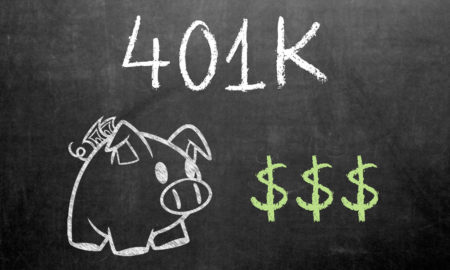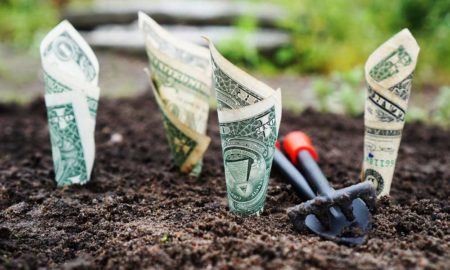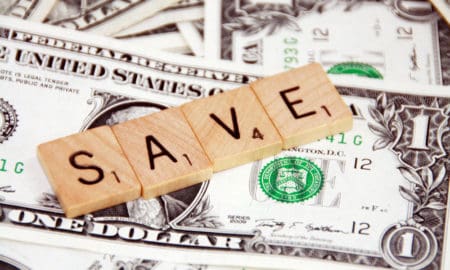

I remember looking up to people in their 30s when I was in college. They looked so grown up, like they had it all figured out.
The house, the car, the kids… but now, at 35, I realize some of them just went with the flow, without a plan, and are paying dearly for the mistakes of their early days.
Your 20s and 30s are the best time to build a strong financial base, to set yourself up for a comfortable life and retirement. It may seem like you are going slow, but you have time on your side.
After a decade or so, everything will snowball for the better, provided you put in the effort early on. So let’s have a look at the major financial milestones you should achieve by your 30s.
1. Not living paycheck to paycheck
YOLO was a fine saying in your 20s. You’re over that now. This is the time to get serious about saving if you want to enjoy what life has to offer. Start by saving $5 a week, $10 the next week, until it hurts. Little amounts will add up.
You can start by saving by opening a savings account intended for your retirement. For example, when your savings account reached $1,500 from interest, and when you withdraw the $1,500 there will be no taxes to pay. This can serve as your tax-free retirement account.
Make sure to negotiate every new offer you get – as this can be an extremely high ROI way to increase your earnings, and have more funds for your high-interest savings account.
2. No more student debt
By your early 30s, you have been out of college for almost 10 years. That is a long time to still carry a balance on your student loans.
The average debt for the class of 2015 was over $35,000. With some loans including a 0% interest period, or some kind of forgiveness over time, you need to find a way to come up with $3,500 a year plus interest to put towards your loans in your 20s. Your 30s are meant for building wealth, not digging your way out of debt.
If you’re still struggling with student debt, you should consider refinancing your student loans to take advantage of low interest rates. The average college graduate who refinances their student loans with SoFi saves an average of $18,936. You can find out how much you can save here.
3. Credit cards only for rewards
Again, it is time to become financially responsible and say goodbye to credit card debt. A 0% balance transfer can help while you finish paying off the capital. Credit cards should be paid in full each month, earning you rewards, cashback and other loyalty perks.
4. A good credit score
Not all debt is bad. In your 30s, you may want to borrow more money to build the life you want, starting with buying a house.
A 0.5% difference on a 25 year mortgage can mean thousands of dollars more in interest. So work on building the best credit history you can, so you can borrow cheap money if the need arises.
Speaking of mortgages and saving money, if you haven’t checked mortgage rates recently, you may want to get a rate quote and do the math to see how much you can save by refinancing your mortgage. It could save you tens of thousands (or even hundreds of thousands) of dollars in interest over the life of your mortgage.
5. A 3 months emergency fund
62% of Americans have less than $1,000 in savings. What would you do in case of a health emergency? A roof replacement?
Whatever it is, the odds are that in your 30s, you will run into some kind of emergency. Be prepared.
6. A mid term fund for yearly expenses
An emergency is an emergency, as in something you didn’t expect. But car repairs, insurance premium, taxes etc. come around every year and can be budgeted for.
You should have enough money to cover that in cash, by saving a little every month for recurring big expenses.
7. Savings for short term splurges
Christmas also comes around every year, and you’re probably going to spend more than you usually do. So again, build up a holiday fund, a Christmas fund, a gift fund, so the spending doesn’t take you by surprise.
8. A long term savings fund for kids or a house
You may not have kids just yet, or a big house, but that is coming. Saving $100 every month for a decade is much easier than having to come up with thousands in a few months. Again, time and compound interest are on your side to build a nice savings account for long term goals.
9. Banking with the best bank on the market for YOUR needs
I value online banking and 24/7 access more than a local branch. Because I spend a lot of money abroad, I prefer a card with 0% fees on foreign transactions to a cashback card. Your needs are specific to your situation, is your bank the best for your needs? Check out this bank for high yields and easy online access.
10. Understanding of your company’s retirement plan
When you got your first job, you may not have paid attention to your company’s retirement plan. Now that you are building a career, you want to make sure each hard earned dollar brings you the best return.
Get familiar with your company’s plan and invest to get at least the company match so you’re not missing out on free money.
11. Contributing to said retirement plan
While saving for your kids’ college might be optional – they can rely on scholarships, loans, and part-time work – nobody will pay for your retirement.
Maxing out your retirement accounts each year, with the money taken straight from your paycheck, is a great way to save painlessly. By automating your contributions so that you never see the money, you won’t miss it.
12. An understanding of basic investing
Investing can be as simple or as complex as you make it. Returns will be correlated to risks, from safe CDs, to equities, to highly leveraged real estate, you need to understand what you are doing to become a successful investor.
Save some money, put it into low fee index funds, wait a few decades and watch it grow. As you learn more about investing, you can diversify your portfolio and balance your risk.
13. Maximizing tax free savings
There are many ways to invest your money in tax free and tax differed vehicles. Now that you make a decent living, you want to minimize your tax burden as much as possible.
14. Starting to invest on the side
On top of your retirement account, you should also look into investing on the side. Long term, the returns of a balanced portfolio of stocks and bonds will be much better than those of savings accounts, provided you can afford to leave the money there for the mid to long term. Unlike retirement accounts, you will be able to withdraw without penalties when needed.
Consider using a robo-advisor to manage your taxable investments. In addition to automated rebalancing and asset allocation, you’ll be able to take advantage of tax-loss harvesting without the headache of trying to manage it yourself.
15. Your retirement goal defined
How do you envision retirement? When will it happen? Will you work until your 60s, or try to retire much earlier? Maybe you want to reject the notion of standard retirement altogether?
Use a retirement calculator to see how big of a nest egg you will need in order to live comfortably in retirement – however you define it.
16. Tracking your net worth
Now that your are earning more, saving more and investing more, it is time to properly track your progress by tracking your net worth to make sure you’re on the path to financial success. Tracking once a month might mislead you because of market swings, once a quarter might be enough to start with.
One of the easiest ways to start tracking your networth is with a free account at Personal Capital. Just connect your bank accounts and you’ll be able to track your networth hassle-free.
17. Adequately insured
Now that you have nicer stuff, a nicer place to live, a car, etc. you don’t want theft or natural disasters to wipe it all away. Make sure you are properly insured.
That means enough insurance to protect against catastrophe, but also not over insuring. For example, sometimes your credit card will have purchase insurance which you don’t need to add to your home insurance.
As a general rule, you do want insurance to protect against financial disaster, but you’ll usually save money long-term by self-insuring e.g. putting away $30 a month into a high interest savings account for Fido’s emergencies instead of spending the money on pet insurance.
18. Considering life insurance
If you have dependants, you might want to start looking into term life insurance policies. At least enough to provide an income replacement to support your family until your kids are out of college, assuming you don’t yet have enough savings to cover this yourself.
19. Investing in further education and classes
Your best asset is yourself. On top of taking care of your health, you should also keep learning in order to earn promotions at work, start your own business or just keep up to date with the 21st century workplace.
Investing in education doesn’t mean you have to spend thousands on learning, there are a ton of free and cheap online classes these days where you can learn almost any skill.
20. At least one more income stream
Every income stream you have on top of your day job is one more string in your bow in case of a job loss. Its also rocket fuel towards financial independence.
Your additional income stream might be dividends from the stock market, rental income from your real estate investments, the odd consulting gig you do in your field, driving for Uber, the extra $25 you make tutoring the neighbor’s kid on Tuesday etc. etc.
Every little bit helps. And no, your parents aren’t an income stream.
21. A plan B
23% of Americans between the ages of 25 and 54 are currently without a job. Did you know many jobs are threatened by automation? As much as 47% of what a pharmacist does can be done by a robo-pharmacist. What would you do the day your boss tells you a computer will replace you from now on?
You need a plan B. My plan B if I lost all my money tomorrow would be to get the first fast-food or restaurant job available. I’ve been hired in a day previously so it can be done.
It’s certainly not ideal, but it would pay the bills until I get back on my feet. What is your plan B?
22. Your own place to live
Roommates are fun and all, but in your 30s you should be able to afford a place of your own, or with your significant other.
A good rule of thumb is that all your living expenses (rent/mortgage, taxes, utilities…) should not exceed a third of your income. This place may be temporary as your family grows, but make sure it is convenient for work and your social life.
23. Aware of the implications of having joint finances and making the right choice
If you are living with a partner or about to get married, research the implications of getting a joint bank account, buying a place together, and merging your finances.
There is no right or wrong answer, it all depends on your personal situation. But make sure you are aware of the consequences should you get separated later in life.
24. Budgeting regularly
You have a finite amount of money to work with, along with expenses every month and savings goals to reach. Budgeting will help you make sure you aren’t going overboard in certain areas of your spending, and help you keep track of money that might be put to better use.
If regular budgeting is something you have difficulty sticking with, consider automating your finances to make your life easier. Check out this list of the best money apps for teens.
25. Be aware of what you can afford
After budgeting for a while, what you can and cannot afford becomes second nature. Can you really spend $50 on dinner every single night? Is $1,500 too much for a computer?
Again, there is no universal right or wrong answer, but you should intuitively know by now what will be easily affordable and what should be given second thoughts before swiping your card.
26. Able to enjoy a better lifestyle
Gone are the days where you and eight other friends would share one room in Vegas, or stay up all night wandering around with your backpack to save on that last hotel night before your red eye flight.
Your 30s can be a time to enjoy a better lifestyle – provided you have the financial foundation to do so. On the other hand, you don’t want to let lifestyle inflation trap you in the rat race. Speaking of the rat race….
27. Get over the Jones
Do you really need a brand new European sports car? Will it add to your happiness, or are you just trying to keep up with the Jones? What would happen if you bought a cheaper car and invested the difference?
You’re not in high school anymore and you don’t need to have what all the cool kids have. Trace your own path in accordance to your values.
28. Your priorities defined
Now that you are in your 30s, you should know what brings you happiness and what doesn’t. Cut ruthlessly on your spending, except for what brings you great pleasure. As J Money from BudgetsAreSexy points out, you can be just as happy drinking beer with friends at home as you can be at the bar. Be sure to question whether spending extra money is actually making you happy.
Date nights with your spouse, the best set of kitchen knives for your love of home cooking – you can afford it as long as you make it a priority and realize that you can afford anything, but not everything. The rest can wait.
29. Giving to charity / helping family
A big part of grown-up finances is being grateful for what you have and putting yourself in a position to help others or support causes dear to your heart. Your aging parents may need your support or other family members going through a tough time may reach to you for financial help.
You can choose to allocate a certain amount each month to charitable giving, or have a dedicated savings fund ready to spend in one go to a good cause.
30. Financially Independent!
Your early 30s are the latest you should become financially independent from your family, the state, or whomever sponsors your lifestyle.
Your parents should enjoy their retirement, not pay your phone bill every month or bail you out when you max out your cards after a shopping spree. Time to grow up and enjoy life on your own!
If you’re really managing your money consciously, your 30s might even be the decade you declare true financial independence.


















2 Comments